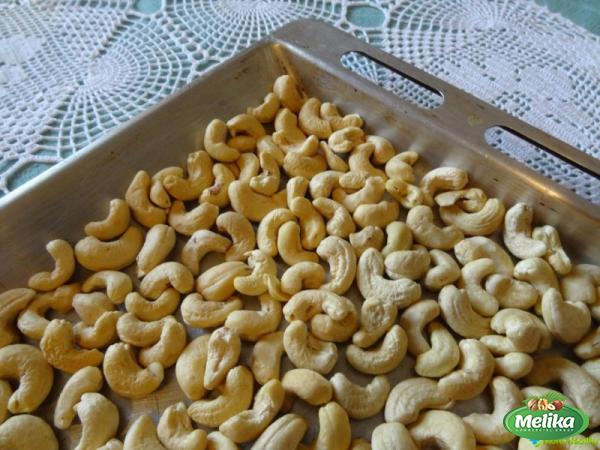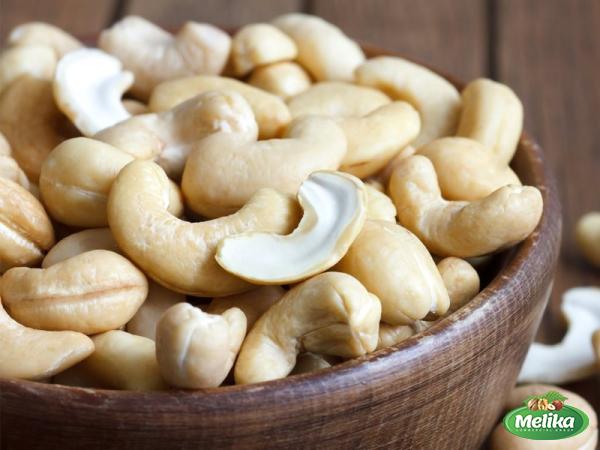Maharashtra, a prominent state located in western India, is known for its diverse agricultural production. With a favorable climate and fertile soil, the state plays a vital role in the cultivation of various crops, including cashew nuts. Cashews are highly valuable crops, both domestically and internationally, contributing significantly to Maharashtra’s agricultural sector and overall economy. This summary provides an overview of the cashew market in Maharashtra, showcasing its production, distribution, challenges, and opportunities. 1. Cashew Cultivation: Cashew cultivation in Maharashtra dates back several decades and has gained considerable prominence as a cash crop. The state benefits from its geographic location, as it falls under the tropical and subtropical belt, providing the ideal conditions for cashew tree growth. The major cashew-growing regions in Maharashtra include Ratnagiri, Sindhudurg, and parts of Western Maharashtra. 2. Production and Yield: Maharashtra holds a prominent position in cashew nut production in India, contributing significantly to the national production. The state’s cashew plantations span across thousands of hectares, and farmers employ modern agricultural practices, including hybrid varieties and scientific cultivation techniques, to improve yield. The average yield per hectare ranges between 600 kg to 800 kg, with variations due to factors such as rainfall, soil type, and farming practices. 3. Market Value and Demand: The cashew market in Maharashtra is largely export-oriented, with a significant demand from countries like the United States, European Union, United Arab Emirates, and other Asian nations. The state’s cashew nuts are known for their premium quality and taste, making them highly sought after in international markets.

nuts
 The estimated market value of the cashew industry in Maharashtra surpasses several billion rupees annually. 4. Processing and Value Addition: Maharashtra houses numerous cashew processing units that contribute to value addition and employment generation. These units employ both manual labor and advanced processing machinery to shell, roast, and package cashew nuts in various forms such as whole kernels, pieces, and broken nuts. Value addition activities like flavoring, salting, and packaging in attractive forms cater to diverse consumer preferences and international market demands. 5. Challenges and Constraints: Despite the significant growth and potential in the cashew sector, Maharashtra faces several challenges that hinder its full potential. These challenges include: a) Climate Vulnerability: Cashew cultivation in Maharashtra is susceptible to climate change-induced factors such as irregular rainfall, heatwaves, and pests. The unpredictability of weather patterns poses risks to both productivity and crop quality. b) High Input Costs: The increasing cost of inputs such as fertilizers, pesticides, and labor affects the profitability of cashew farming. Farmers need to adopt cost-effective strategies to mitigate these challenges. c) Market Fluctuations: Cashew prices in the global market fluctuate due to factors such as international trade policies, currency exchange rates, and supply-demand dynamics. Farmers need to stay informed and adapt to these fluctuations to maximize their returns. d) Infrastructural Gaps: Insufficient storage and transportation facilities in some cashew-growing regions create logistical challenges, resulting in post-harvest losses and delayed delivery to the market. 6. Opportunities and Future Outlook: Despite the challenges, the cashew market in Maharashtra offers several opportunities for growth and diversification. These include: a) Value Chain Integration: Encouraging and supporting farmers to participate in the entire value chain, from cultivation to processing and marketing, would help maximize profitability and reduce dependency on intermediaries. b) Organic Cashew Production: With increasing awareness about organic and sustainable produce, Maharashtra can explore and promote organic cashew farming. This would cater to the niche market demand and fetch premium prices. c) Research and Development: Investing in research and development to develop climate-resilient cashew varieties, sustainable farming practices, and effective pest management strategies can enhance productivity and reduce vulnerabilities. d) Export Promotion: Collaborating with international trade bodies, participating in trade fairs, and improving marketing strategies will strengthen Maharashtra’s position in the global cashew market. Conclusion: The cashew market in Maharashtra showcases immense potential for growth and contributes significantly to the state’s agricultural sector. By addressing challenges such as climate vulnerability, high input costs, market fluctuations, and infrastructural gaps, Maharashtra can further maximize its cashew production and tap into lucrative international markets. Strategic interventions, value addition, and exploring diverse market opportunities will play a crucial role in realizing the full potential of the cashew sector in Maharashtra.
The estimated market value of the cashew industry in Maharashtra surpasses several billion rupees annually. 4. Processing and Value Addition: Maharashtra houses numerous cashew processing units that contribute to value addition and employment generation. These units employ both manual labor and advanced processing machinery to shell, roast, and package cashew nuts in various forms such as whole kernels, pieces, and broken nuts. Value addition activities like flavoring, salting, and packaging in attractive forms cater to diverse consumer preferences and international market demands. 5. Challenges and Constraints: Despite the significant growth and potential in the cashew sector, Maharashtra faces several challenges that hinder its full potential. These challenges include: a) Climate Vulnerability: Cashew cultivation in Maharashtra is susceptible to climate change-induced factors such as irregular rainfall, heatwaves, and pests. The unpredictability of weather patterns poses risks to both productivity and crop quality. b) High Input Costs: The increasing cost of inputs such as fertilizers, pesticides, and labor affects the profitability of cashew farming. Farmers need to adopt cost-effective strategies to mitigate these challenges. c) Market Fluctuations: Cashew prices in the global market fluctuate due to factors such as international trade policies, currency exchange rates, and supply-demand dynamics. Farmers need to stay informed and adapt to these fluctuations to maximize their returns. d) Infrastructural Gaps: Insufficient storage and transportation facilities in some cashew-growing regions create logistical challenges, resulting in post-harvest losses and delayed delivery to the market. 6. Opportunities and Future Outlook: Despite the challenges, the cashew market in Maharashtra offers several opportunities for growth and diversification. These include: a) Value Chain Integration: Encouraging and supporting farmers to participate in the entire value chain, from cultivation to processing and marketing, would help maximize profitability and reduce dependency on intermediaries. b) Organic Cashew Production: With increasing awareness about organic and sustainable produce, Maharashtra can explore and promote organic cashew farming. This would cater to the niche market demand and fetch premium prices. c) Research and Development: Investing in research and development to develop climate-resilient cashew varieties, sustainable farming practices, and effective pest management strategies can enhance productivity and reduce vulnerabilities. d) Export Promotion: Collaborating with international trade bodies, participating in trade fairs, and improving marketing strategies will strengthen Maharashtra’s position in the global cashew market. Conclusion: The cashew market in Maharashtra showcases immense potential for growth and contributes significantly to the state’s agricultural sector. By addressing challenges such as climate vulnerability, high input costs, market fluctuations, and infrastructural gaps, Maharashtra can further maximize its cashew production and tap into lucrative international markets. Strategic interventions, value addition, and exploring diverse market opportunities will play a crucial role in realizing the full potential of the cashew sector in Maharashtra.
Specifications of nuts
 The cashew market in Maharashtra holds significant potential for growth and development. As one of the largest cashew-producing states in India, Maharashtra contributes significantly to the domestic and international cashew trade. However, there are challenges that need to be addressed, along with opportunities and emerging trends that can help propel the cashew industry forward. 1. Increasing Demand for Healthy Snacks: The global trend towards healthier eating habits has created a growing demand for nutritious snacking options. Cashew nuts, with their rich flavor, high protein content, and beneficial fats, are gaining popularity as a healthy snack. Maharashtra’s cashew growers can capitalize on this trend by promoting the health benefits of cashews and positioning them as a wholesome snacking alternative. 2. Value Addition through Processing: To cater to the evolving demands of consumers, Maharashtra’s cashew industry can focus on value addition through processing. This includes developing flavored cashew variants, offering roasted and salted cashews, and producing cashew-based snack products. Value-added products have higher profit margins and can help farmers and processors capture a larger share of the market. 3. Export Diversification: While Maharashtra’s cashews are already exported to several countries, there is an opportunity to diversify and expand export markets. Emerging economies in Asia, such as China and India’s neighboring countries, are showing increasing demand for cashew nuts. By targeting these markets and exploring new distribution channels, Maharashtra can tap into new export opportunities and reduce dependency on traditional markets. 4. Technological Innovations: The cashew industry can benefit from technological advancements in various areas. Improved farming practices, such as precision agriculture and the use of drones for crop monitoring, can enhance productivity and reduce costs. Furthermore, automation and mechanization in processing units can increase efficiency and consistency in output. Embracing technology will not only boost productivity but also attract younger generations to participate in the cashew industry. 5. Organic and Sustainable Farming Practices: The demand for organic and sustainably produced cashews is growing worldwide. Maharashtra can capitalize on this trend by encouraging and supporting farmers to adopt organic farming practices. Organic certification can fetch premium prices in the market and create niche opportunities for cashew growers. 6. Government Support and Subsidies: The government plays a crucial role in promoting the growth of the cashew industry.
The cashew market in Maharashtra holds significant potential for growth and development. As one of the largest cashew-producing states in India, Maharashtra contributes significantly to the domestic and international cashew trade. However, there are challenges that need to be addressed, along with opportunities and emerging trends that can help propel the cashew industry forward. 1. Increasing Demand for Healthy Snacks: The global trend towards healthier eating habits has created a growing demand for nutritious snacking options. Cashew nuts, with their rich flavor, high protein content, and beneficial fats, are gaining popularity as a healthy snack. Maharashtra’s cashew growers can capitalize on this trend by promoting the health benefits of cashews and positioning them as a wholesome snacking alternative. 2. Value Addition through Processing: To cater to the evolving demands of consumers, Maharashtra’s cashew industry can focus on value addition through processing. This includes developing flavored cashew variants, offering roasted and salted cashews, and producing cashew-based snack products. Value-added products have higher profit margins and can help farmers and processors capture a larger share of the market. 3. Export Diversification: While Maharashtra’s cashews are already exported to several countries, there is an opportunity to diversify and expand export markets. Emerging economies in Asia, such as China and India’s neighboring countries, are showing increasing demand for cashew nuts. By targeting these markets and exploring new distribution channels, Maharashtra can tap into new export opportunities and reduce dependency on traditional markets. 4. Technological Innovations: The cashew industry can benefit from technological advancements in various areas. Improved farming practices, such as precision agriculture and the use of drones for crop monitoring, can enhance productivity and reduce costs. Furthermore, automation and mechanization in processing units can increase efficiency and consistency in output. Embracing technology will not only boost productivity but also attract younger generations to participate in the cashew industry. 5. Organic and Sustainable Farming Practices: The demand for organic and sustainably produced cashews is growing worldwide. Maharashtra can capitalize on this trend by encouraging and supporting farmers to adopt organic farming practices. Organic certification can fetch premium prices in the market and create niche opportunities for cashew growers. 6. Government Support and Subsidies: The government plays a crucial role in promoting the growth of the cashew industry.
buy nuts
 Providing subsidies for inputs such as seeds, fertilizers, and machinery can make cashew farming more cost-effective and financially viable for farmers. Building infrastructure, such as storage facilities and cold chains, can reduce post-harvest losses and ensure the quality of cashews throughout the supply chain. 7. Promotion of Cashew-Based Industries: The establishment of cashew-based industries, such as cashew processing units and cashew-based product manufacturing, can create additional employment opportunities and add value to the cashew market. Maharashtra’s cashew industry can benefit from collaborations with investors and entrepreneurs in developing these industries and promoting the “Make in Maharashtra” campaign. 8. Skill Development Programs: To enhance the competitiveness of the cashew sector, skill development programs should be initiated. These programs can focus on training farmers and workers in modern farming techniques, quality control, processing, and packaging. Enhancing skills and knowledge will lead to improved productivity and quality, making Maharashtra’s cashews more competitive in the global market. 9. Establishing Brand Mahacashew: Maharashtra’s cashew industry can create a distinct brand identity by establishing “Mahacashew” as a premium-quality and trusted brand in the international market. This would require implementing strict quality control measures, adhering to international food safety standards, and actively engaging in branding and marketing activities. 10. Research and Development: Investing in research and development (R&D) is pivotal for the long-term growth and sustainability of the cashew market. R&D efforts can focus on developing disease-resistant cashew varieties, optimizing farming techniques, and improving processing technologies. Collaborations between research institutions, industry players, and farmers can facilitate knowledge sharing and innovation in the sector. Conclusion: The cashew market in Maharashtra holds immense potential for growth, capitalizing on emerging trends, and overcoming challenges is essential for realizing this potential. By embracing value addition, diversifying export markets, incorporating technological advancements, promoting sustainability, and receiving government support, Maharashtra’s cashew industry can thrive, generate employment opportunities, and contribute significantly to both the state’s agricultural sector and the global cashew trade. With the right strategies and collaborative efforts, Maharashtra can position itself as a leading player in the cashew market, achieving sustainable growth and market recognition.
Providing subsidies for inputs such as seeds, fertilizers, and machinery can make cashew farming more cost-effective and financially viable for farmers. Building infrastructure, such as storage facilities and cold chains, can reduce post-harvest losses and ensure the quality of cashews throughout the supply chain. 7. Promotion of Cashew-Based Industries: The establishment of cashew-based industries, such as cashew processing units and cashew-based product manufacturing, can create additional employment opportunities and add value to the cashew market. Maharashtra’s cashew industry can benefit from collaborations with investors and entrepreneurs in developing these industries and promoting the “Make in Maharashtra” campaign. 8. Skill Development Programs: To enhance the competitiveness of the cashew sector, skill development programs should be initiated. These programs can focus on training farmers and workers in modern farming techniques, quality control, processing, and packaging. Enhancing skills and knowledge will lead to improved productivity and quality, making Maharashtra’s cashews more competitive in the global market. 9. Establishing Brand Mahacashew: Maharashtra’s cashew industry can create a distinct brand identity by establishing “Mahacashew” as a premium-quality and trusted brand in the international market. This would require implementing strict quality control measures, adhering to international food safety standards, and actively engaging in branding and marketing activities. 10. Research and Development: Investing in research and development (R&D) is pivotal for the long-term growth and sustainability of the cashew market. R&D efforts can focus on developing disease-resistant cashew varieties, optimizing farming techniques, and improving processing technologies. Collaborations between research institutions, industry players, and farmers can facilitate knowledge sharing and innovation in the sector. Conclusion: The cashew market in Maharashtra holds immense potential for growth, capitalizing on emerging trends, and overcoming challenges is essential for realizing this potential. By embracing value addition, diversifying export markets, incorporating technological advancements, promoting sustainability, and receiving government support, Maharashtra’s cashew industry can thrive, generate employment opportunities, and contribute significantly to both the state’s agricultural sector and the global cashew trade. With the right strategies and collaborative efforts, Maharashtra can position itself as a leading player in the cashew market, achieving sustainable growth and market recognition.











Your comment submitted.